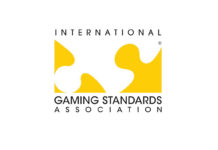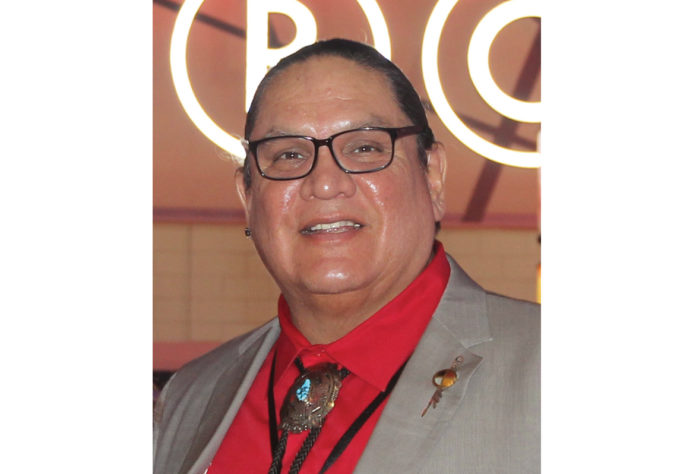At ICE London 2023, Indian Gaming magazine had the opportunity to speak with Indian Gaming Association Chairman Ernie Stevens, Jr. to discuss the importance of tribal gaming being represented on the world stage. Here is what he had to say…
What does it mean to be at ICE London with such a large tribal contingent?
I’ve learned a lot from my father who told me since I was young, ‘We have to understand the international market, because sovereign countries can work with sovereign governments.’ Now we do, but not nearly as much as we could. We have several tribes that are working internationally, such as with the Hard Rock brand and Mohegan. A number of tribes have expanded into this space. Some of these tribes are really showing us the international way, while others are just now stepping out or on the verge. But still, many don’t realize. We want to encourage our tribes to understand that there is a whole economic world out there, and more importantly, to see that the world could come and do business with us.
Indian Gaming Association (IGA) Executive Director, Jason Giles is here, as well as IGA Conference Chairman Victor Rocha, and my wife Cheryl, who is here helping. We do this because we want to appropriately, intellectually and safely educate the world about not just the Indian gaming business, but who we are. I don’t break it down fundamentally like, ‘we don’t live in teepees,’ but sometimes it gets that basic.
At the Indian gaming panels, we tried to cover every base we could. It’s important to let the international business community know who we are; understand that we mean business; and that we are polite, professional, and shrewd if we have to be. We can’t just run out and do something just to do it. We have to do things that will resonate in our communities for seven generations. That’s how we plan – seven generations ahead.
What has been the best way to broadcast the Indian gaming message to the international community?
In my presentations at ICE London, I’m supposed to talk about business, economic development, understanding tribal gaming and get to know folks; but they also need to know what we’ve had to endure, and that we didn’t just show up one day and open casinos because we’re Indians. We have contributed to economic development from day one in our history – long before the United States existed. It’s hard to go forward in a new economic or governmental relationship without the other party understanding sovereign tribal governments.
The other part about it is, there are so many stereotypes. Even in America, many don’t understand. People get the wrong idea that because of our historical struggles, ‘they just gave us casinos.’ We didn’t ask for casinos. We established casinos because Indian Country has gamed since time immemorial. We’ve created economic development with and amongst our tribes and other tribes since time immemorial. What the pilgrims and settlers and explorers found when they came to our lands were very systematic governments. I’m an Oneida, so I speak specifically to the Iroquois Confederacy, which the United States Constitution is modeled after to a large extent.
We opened our arms and shared and taught these visitors how to survive in our world. We were the engineers, the legislators and government officials. We taught how to farm and how to take care of Mother Earth. And somewhere along the line, the settlers lost focus. However, that’s not why we have gaming. That’s not why we have a right to do business. That’s not why we have treaties with the U.S. government. We have those rights because we are governments within this government, and have been doing this since long before there was a U.S. government.
It’s been about 10 years now that we’ve been coming to ICE London and meeting with the international community. The world is starting to know who we are and where we come from. From our work over the years, we feel like we are making some headway. It’s important that the international community understands what we’ve been through, where we’re going and what we do to impact the world around us as we talk about gaming and economic development.
What takeaways are there from the pandemic?
The pandemic has taught us that we have to reach out with and beyond gaming. The impact of the pandemic, in spite of how well the industry has done, is still upon us. My heart always goes out to the tribal leaders and the professional people who have been on the frontline dealing with this. We appreciate and respect them.
Throughout the pandemic, we worked hard to help each other. Our properties are open for business and safe. Our managers, leaders, and regulators have all been on the frontlines doing everything they can to help us build back – and we have.
With tribes taking ownership positions on the Las Vegas strip, how does this affect the growth of Indian gaming?
We don’t compete with the commercial gaming world. For people that want to visit the fast moving life in Las Vegas – it’s there. But for people who want to see the beauty, culture and history of Indian Country, that’s here too. That’s why I don’t think there’s a competition with commercial gaming in Las Vegas; these industries complement each other. We can walk side by side with them. There are a lot of different economic opportunities out there in the world.
After the Indian Gaming Regulatory Act passed 35 years ago and we started putting shovels in the ground and began expanding into gaming operations, we had to bring in a lot of consultants. We had to bring in a lot of folks to help us understand it and get going. But today, 35 years later, we are the experts.
What are some unsung benefits of Indian gaming and do you have any examples to share?
About three quarters of the employees working in Indian gaming are non-Indian. So, our good jobs, benefits, safe working environments, resonate well beyond just the tribal members. The success of our industry goes much further than the boundaries of our reservations.
Even at home, we have to take the myth of the rich Indian out of the perception of Indian Country. My wife and I paid student loans until we were 45 years old. Because of Indian gaming, there are tribal members today that have very little, if any, student loan debt. And that’s why people think that these are charity dollars or they think they are non-taxable dollars. Our gaming dollars are 100 percent taxed by the service that we provide to our members. But it doesn’t mean tribal members are not working hard to survive in life and to do good things. You still have to show up to work every day. And you still have to work your way up the chain. It’s just the way it is. And our parents and our grandparents wouldn’t have it any other way.
For more information about the Indian Gaming Association, visit www.indiangaming.org.
















































